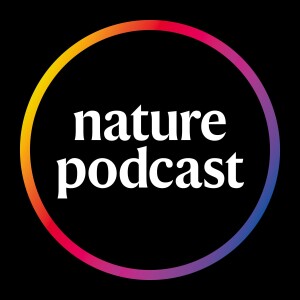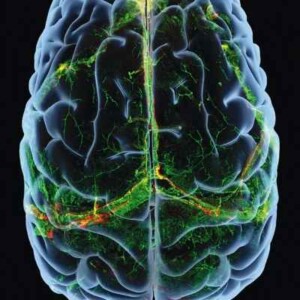
The phenomenon of animals catching diseases from humans, called reverse zoonoses, has had a severe impact on great ape populations, often representing a bigger threat than habitat loss or poaching.
However, while many scientists and conservationists agree that human diseases pose one of the greatest risks to great apes today there are a few efforts under way to use a research-based approach to mitigate this problem.
This is an audio version of our Feature Chimpanzees are dying from our colds — these scientists are trying to save them
Hosted on Acast. See acast.com/privacy for more information.
More Episodes
The scientist whose hybrid rice helped feed billions
 2021-06-30
2021-06-30
Audio long-read: How COVID exposed flaws in evidence-based medicine
 2021-06-28
2021-06-28
Coronapod: should you have a COVID vaccine when breastfeeding?
 2021-06-25
2021-06-25
Quantum compass might help birds 'see' magnetic fields
 2021-06-23
2021-06-23
CureVac disappoints in COVID vaccine trial
 2021-06-18
2021-06-18
Communities, COVID and credit: the state of science collaborations
 2021-06-16
2021-06-16
Coronapod: Counting the cost of long COVID
 2021-06-11
2021-06-11
Google AI beats humans at designing computer chips
 2021-06-09
2021-06-09
Coronapod: Uncertainty and the COVID 'lab-leak' theory
 2021-06-04
2021-06-04
On the origin of numbers
 2021-06-02
2021-06-02
New hope for vaccine against a devastating livestock disease
 2021-05-26
2021-05-26
Audio long-read: How harmful are microplastics?
 2021-05-24
2021-05-24
The 'zombie' fires that keep burning under snow-covered forests
 2021-05-19
2021-05-19
Coronapod: The variant blamed for India's catastrophic second wave
 2021-05-14
2021-05-14
The brain implant that turns thoughts into text
 2021-05-12
2021-05-12
Coronapod: Waiving vaccine patents and coronavirus genome data disputes
 2021-05-07
2021-05-07
Oldest African burial site uncovers Stone Age relationship with death
 2021-05-05
2021-05-05
Coronapod special: The inequality at the heart of the pandemic
 2021-04-30
2021-04-30
What fruit flies could teach scientists about brain imaging
 2021-04-28
2021-04-28
Audio long-read: How drugmakers can be better prepared for the next pandemic
 2021-04-26
2021-04-26
Create your
podcast in
minutes
- Full-featured podcast site
- Unlimited storage and bandwidth
- Comprehensive podcast stats
- Distribute to Apple Podcasts, Spotify, and more
- Make money with your podcast
It is Free
- Privacy Policy
- Cookie Policy
- Terms of Use
- Consent Preferences
- Copyright © 2015-2024 Podbean.com


 iOS
iOS Android
Android


